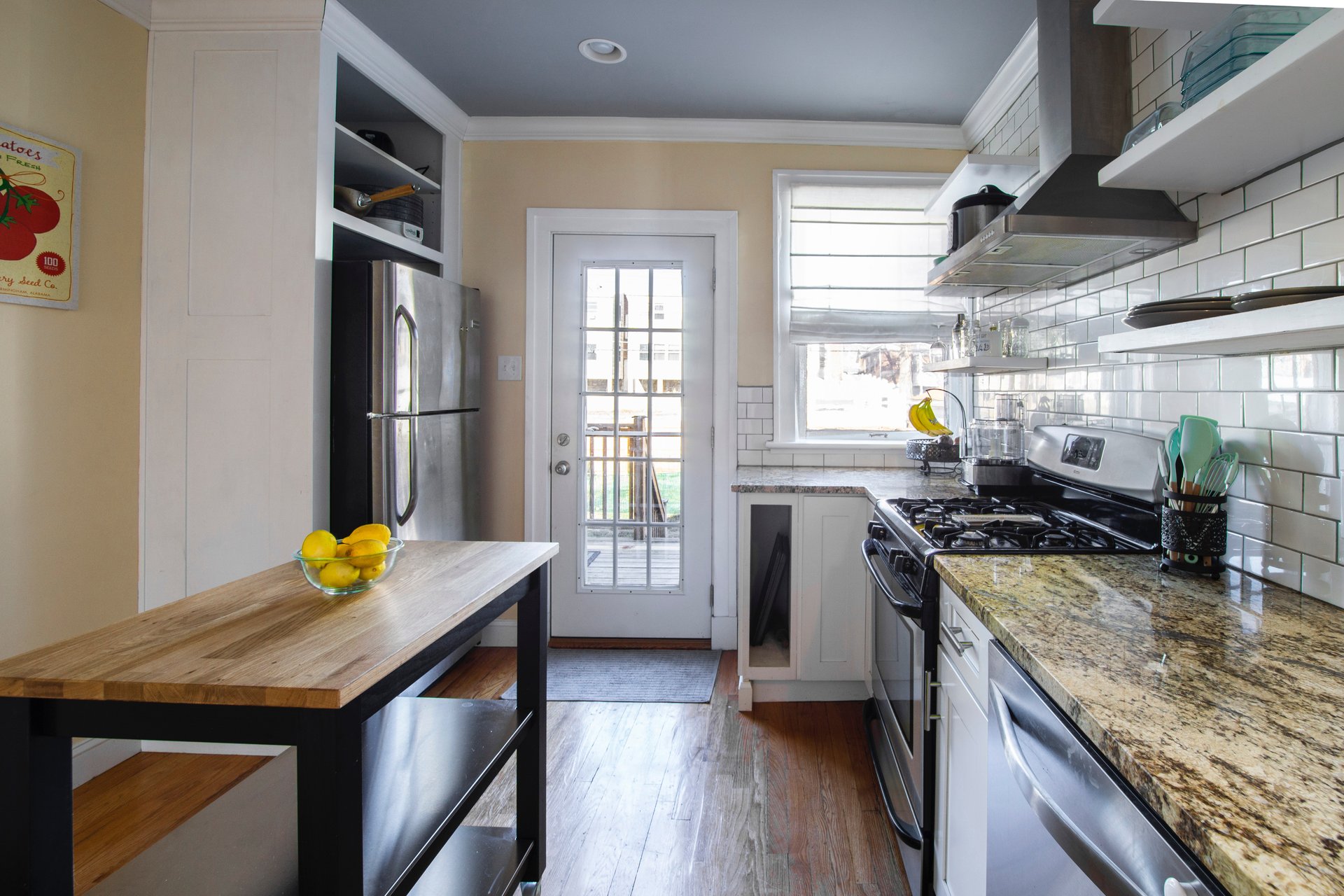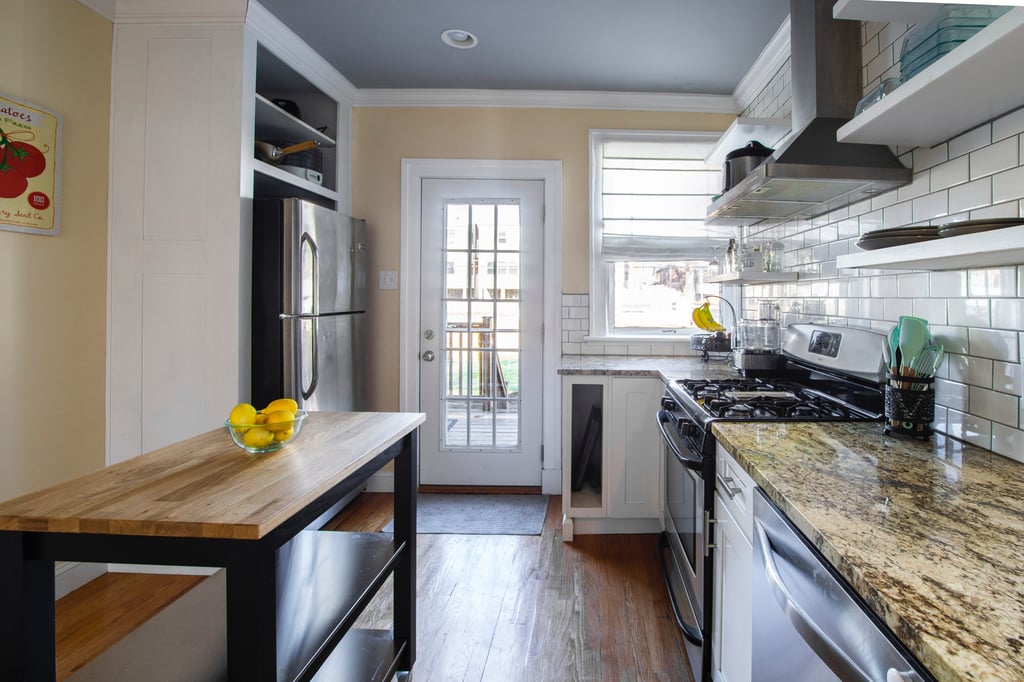
Home Buying 101: Ten Steps to Home Ownership
Buying a home can be a bit overwhelming if you've never done it before – and sometimes even if you have – but below we break down home buying in just 10 steps. From perfecting your credit score and determining your budget to conducting an inspection and closing on your new home, you'll find all you need to know about buying a home from start to finish.
1. Get Your Credit Score in Line
Your credit score is one of the most important factors in buying a home because it weighs heavily with underwriters. All banks and other financial institutions want to know that they're lending to a responsible, creditworthy person with a history of on-time payments. Plus, with a better score, you get lower interest rates, which leads to considerable savings over the life of the loan. So take some time to improve your credit score before you think about qualifying for a mortgage loan because most traditional lenders require a FICO score of 620 or higher.
Remember, the higher your score, the lower your rate. US Mortgages works with individuals that have credit scores down to 580 and lower (on a case-by-case basis) so don’t let a past problem keep you from getting started. Even if we can't help today we can get you on track to close faster!

2. Calculate Your Budget
A home is likely the most expensive thing you'll buy in your lifetime, which is why it's important to do it right. When thinking about the prices of homes, it helps to have a budget in mind so that you don't end up missing payments and potentially losing your home.
Calculating your budget means figuring out exactly how much you can afford to pay monthly on a home mortgage, including Homeowners Association dues (if applicable), homeowner's insurance/private mortgage insurance, and property taxes.
Write out a list of all of your monthly expenses and determine how much you can comfortably afford to spend on your mortgage, down payment, and other housing expenses. Be sure not to spread yourself too thin and always leave room in your budget for savings and emergencies. You also want to save enough for move-in expenses and budget for closing costs (usually between 2% and 5% of your loan amount).
First-time home buyer programs often provide assistance with only a 3% down payment. If you're not sure how to calculate your down payment, find a down payment calculator online that can help you figure out how much to save. Remember, the amount that you put down on a house affects your monthly mortgage payment and interest rate. The more you put down, the lower your monthly payments and interest will be. Research local and state assistance programs to see if you qualify for assistance with your mortgage loan.
If you find that saving up for a down payment on your own is just not feasible, check to see if you qualify for an FHA or USDA down payment assistance program. To qualify for an FHA loan, you have to:
- Have a FICO credit score of at least 580 (and 3.5% of the down payment)
- Have a FICO credit score between 500 and 579 (and 10% of the down payment)
- Have a debt-to-income ratio of less than 50%
- Provide proof of employment and steady income
- Mortgage Insurance Premium (MIP)
- Use the home as your primary residence (meaning you can't use it as an investment property)
FHA loan credit requirements are about more than just your score. You'll also be considered based on any prior foreclosures, bankruptcies, payment history, and any other information deemed to be an extenuating circumstance that might prevent you from making your payments on time.
USDA loan requirements state that you have to:
- Be an American citizen, non-citizen national, or Qualified Alien
- Meet income eligibility
- Have the legal ability to incur the loan obligation
- Agree to live in the home as your primary residence
- Buy a home that meets all program criteria
- Be in good standing to participate in federal programs
- Prove your preparedness to meet any credit obligations in a timely manner
3. Work with a Mortgage Lender
If you work with a mortgage lender, you can get pre-approved so that you know how much a lender might be willing to let you borrow based on debts and income. It's better to work with a mortgage lender to get pre-approval when you're getting closer to buying your home. A pre-approval is almost always required to even submit an offer, and also shows the seller you're ready, willing, and able to buy!
As part of this stage, make sure you have your homeowner's insurance policy in place. Before you decide on a policy, shop around for the best deals. Make sure you know what's covered in the policy and how much protection you'll get. Also, flood damage isn't covered by homeowner's insurance, so if you live in an area prone to flooding, you might want to consider purchasing flood insurance separately.
When it comes to mortgage loans, there are a few options available, some of which include conventional, FHA, and USDA loans.
conventional loan
FHA loan
An FHA loan is a Federal Housing Administration loan and requires you to purchase mortgage insurance prior to approval. The FHA loan is great for people who are just getting started buying a home, who don't have a lot of cash saved, or who are in a little bit more debt than others. FHA loans allow you to borrow up to 96.5% of the cost of your home.
VA loan
4. Find a Realtor

Finding a good realtor can make all the difference throughout your home-buying journey because a good realtor will work in your best interest. Try to find someone you get along with who understands your needs because a realtor can help make your home search much easier. A good realtor should be self-motivated and honest. Your realtor should have great attention to detail, deep knowledge and understanding of the housing market, and a strong network of connections.
There are a lot of listings to sift through and as a buyer, getting a realtor costs you nothing. An additional benefit you get with US is if you select one of our Preferred Realtors (which we do the negotiations for you), you get great service AND 1% of the purchase price back at closing! Typically, the seller has to pay about 3% to 6% of the sale price.
5. Search For Your Dream Home
With your credit ready, budget calculated, a lender and realtor lined up, you can now begin searching for your home! While searching, keep in mind your non-negotiables versus things you can actually compromise on to stay within your budget. Sometimes it might be better to go a little further out of the city for a better price. So think about what you're willing to give little on when the time comes. You might not be willing to bend on things like neighborhoods with good schools.
Also, consider whether houses in the areas you're searching are selling close to (and even above) the asking price. If so, it means that the area is desirable and you have more options when it comes to when you'll do your house hunting. For example, during the winter months, you might be more likely to get a better price on the home you want because you'll probably have less competition. So you'll be in a better position to negotiate with the seller. Don't be afraid to ask for what you need from the seller. For example, a seller might be willing to throw in a few repairs or give you a credit adjustment at closing.
6. Bid
If you've never purchased a home before, you might be wondering exactly how the bidding process works. Well, once you find a home you want to make an offer on, bid on it as quickly as possible (especially if there is competition for the home). To figure out what you should be bidding, gather data on at least three houses in the neighborhood that have recently sold. Try to stick within the range of those three homes and whatever price you decide on, avoid low-balling your initial offer. Try to offer something fair and within your price range. This is also something your realtor will help you with to make a strong offer that is likely to get accepted.
Once you've made your offer and you both agree to a price, the seller's agent will write up an offer to purchase. This document typically includes an estimated closing date, which could be anywhere between 30 and 45 days from the time the offer is accepted.
7. Enter Your Contract and Secure Your Mortgage Loan
Your Realtor will help you prepare your offer to purchase and we highly recommend also getting an inspection. You do NOT want to buy someone elses problems and begin life in your new home with unexpected issues and expenses! You will need to contact your lender as soon as your offer is accepted to get moving on the loan as fast as possible and also make sure you get a final walk through 24 hours prior to closing to ensure nothing is missing or damaged.
You need to be completely sure the deal is dependent upon the following:
8. Conduct an Inspection
Don't be afraid to ask the inspector questions if you're not too sure about something. You can ask pretty much any question, other than, "Should I purchase this home?" Your inspector most likely won't answer that question and instead may suggest that you look over the inspection reports and determine what the seller will fix. Make sure that the house is inspected thoroughly, including attics, basements, and crawl spaces. If your inspection does reveal an underlying problem, you can ask the sellers to fix the issue and get you resolution you are satisfied with to continue with the buying process. Alternatively, you can walk away and all your earnest money will be refunded to go back and look at other homes.
9. Close
It's finally time to take ownership of your new home and now that you've gone through all of the hurdles, it's time to think about moving in.
Prior to closing, you'll also want to make sure you've saved enough for moving expenses. For example, how will you pay for furniture and other items that you might want to fill your new home with like new carpet, new appliances, and new paint? At closing, you'll finally sign all of the paperwork to make everything official.

Most every document (and there are a lot) you will be signing are standard forms but you are welcome to take your time and read any, or all of them completely before signing. If you are not overly concerned about all of the standard forms, you should at least thoroughly review your numbers for purchase price, seller concessions (if any), your down payment amount, loan amount, and interest rate to ensure they are all correct. Also, make sure that your earnest money you put down is credited to your down payment total. This may sound odd, but it happens: Make sure to check that your name is spelled correctly and the address of your new home is accurate too!
10. Move In and Enjoy!
Congratulations! Now that you have gone from the initial thought of buying a home, to searching, to finally closing keep the following things in mind. It's always easiest to paint and replace carpet, or change to whatever surface of flooring you may want, when the home is empty. If home renovations are in store for you, then consider delaying the move a few days to get these items completed prior to moving. Since your move-in day and/or repairs and improvements will be known prior to closing, make sure to plan accordingly.
Utilities will need to be under your name and movers (if you're not moving yourself) will need to be scheduled. If you are moving yourself, make sure you reserve a moving truck in advance as there are times when they get booked up so don’t get caught off guard by waiting until the last minute!
With the above in mind, you can set your mind at ease when it comes to purchasing your home. Follow these steps closely and your dream of home ownership will be a reality sooner than you know!




